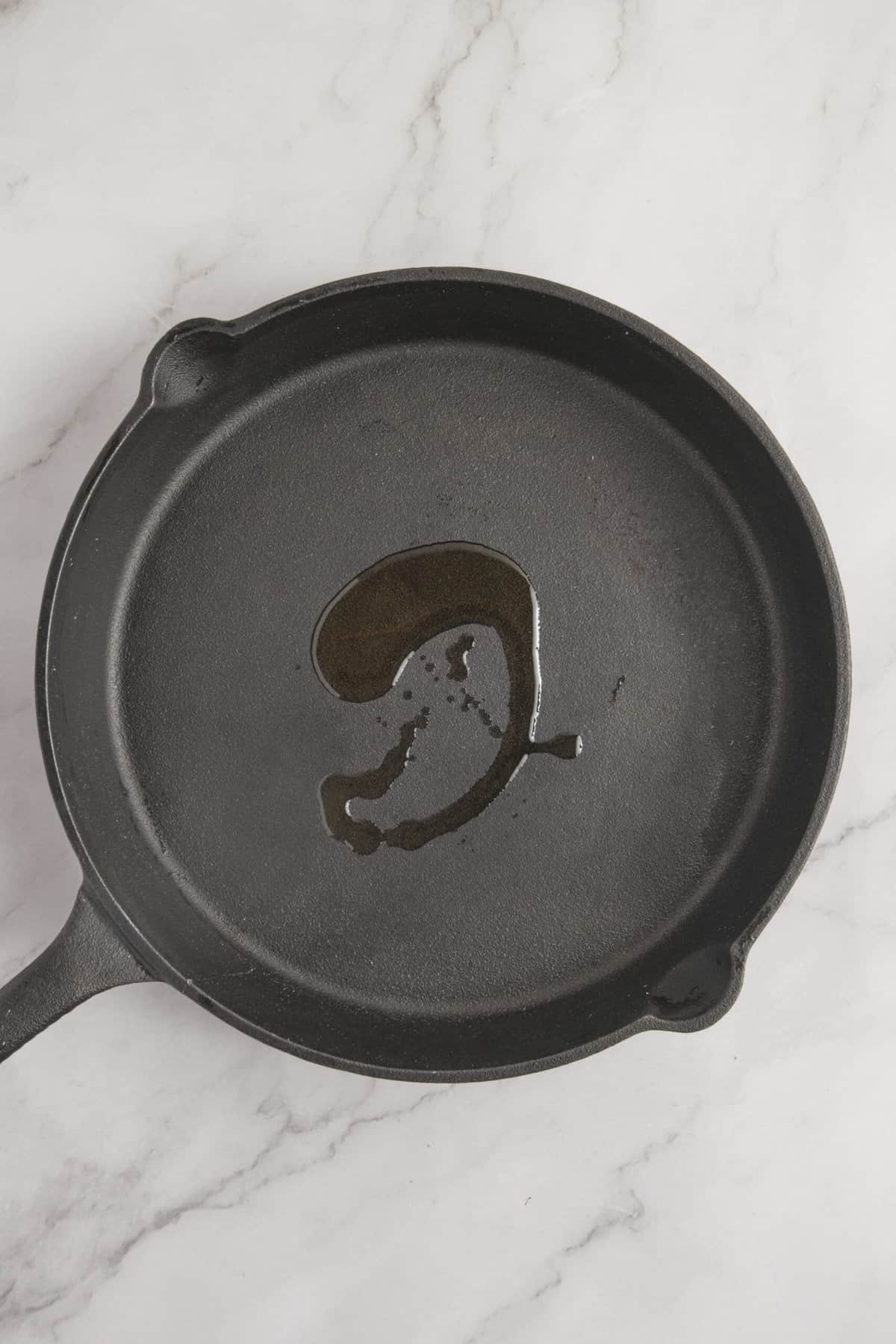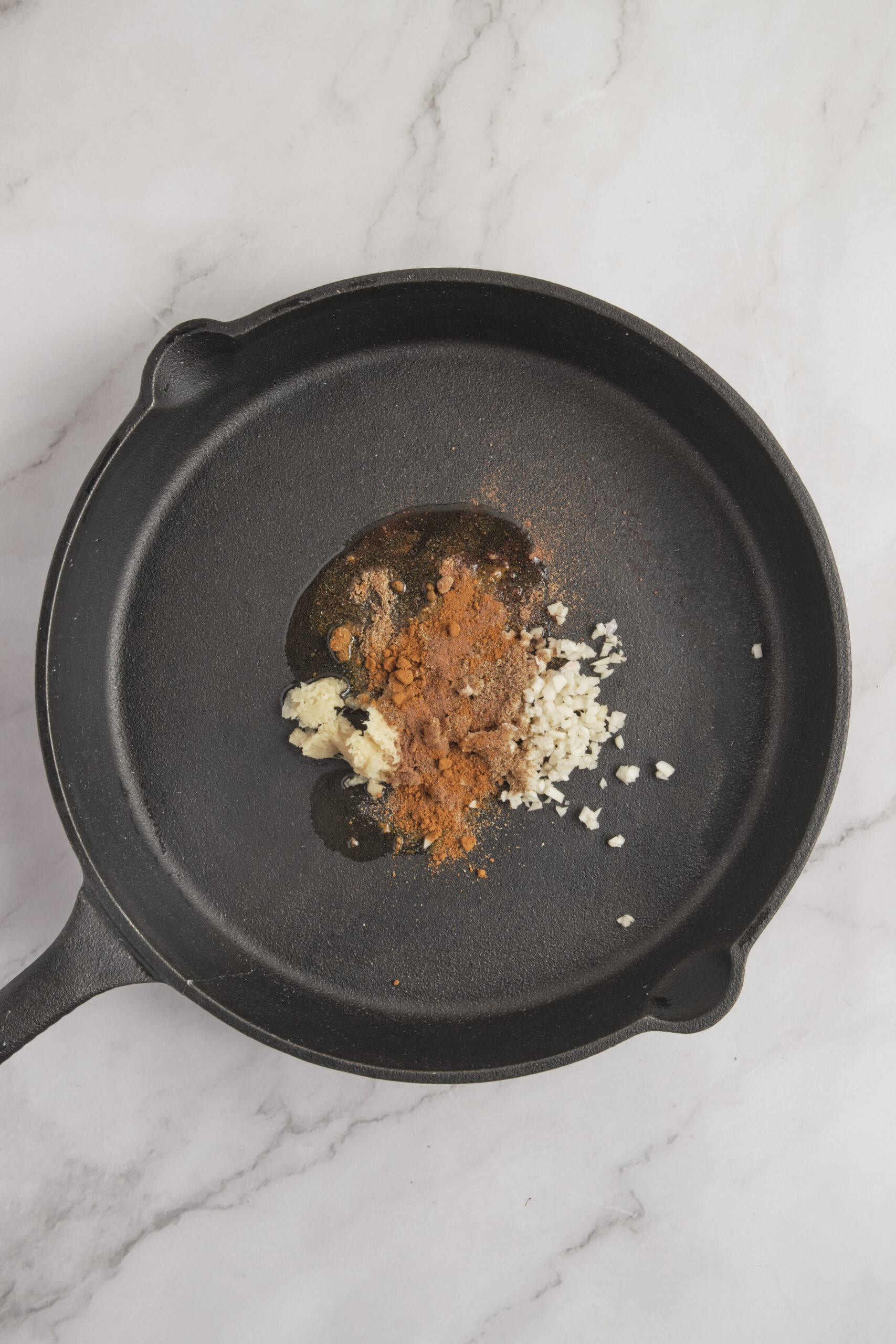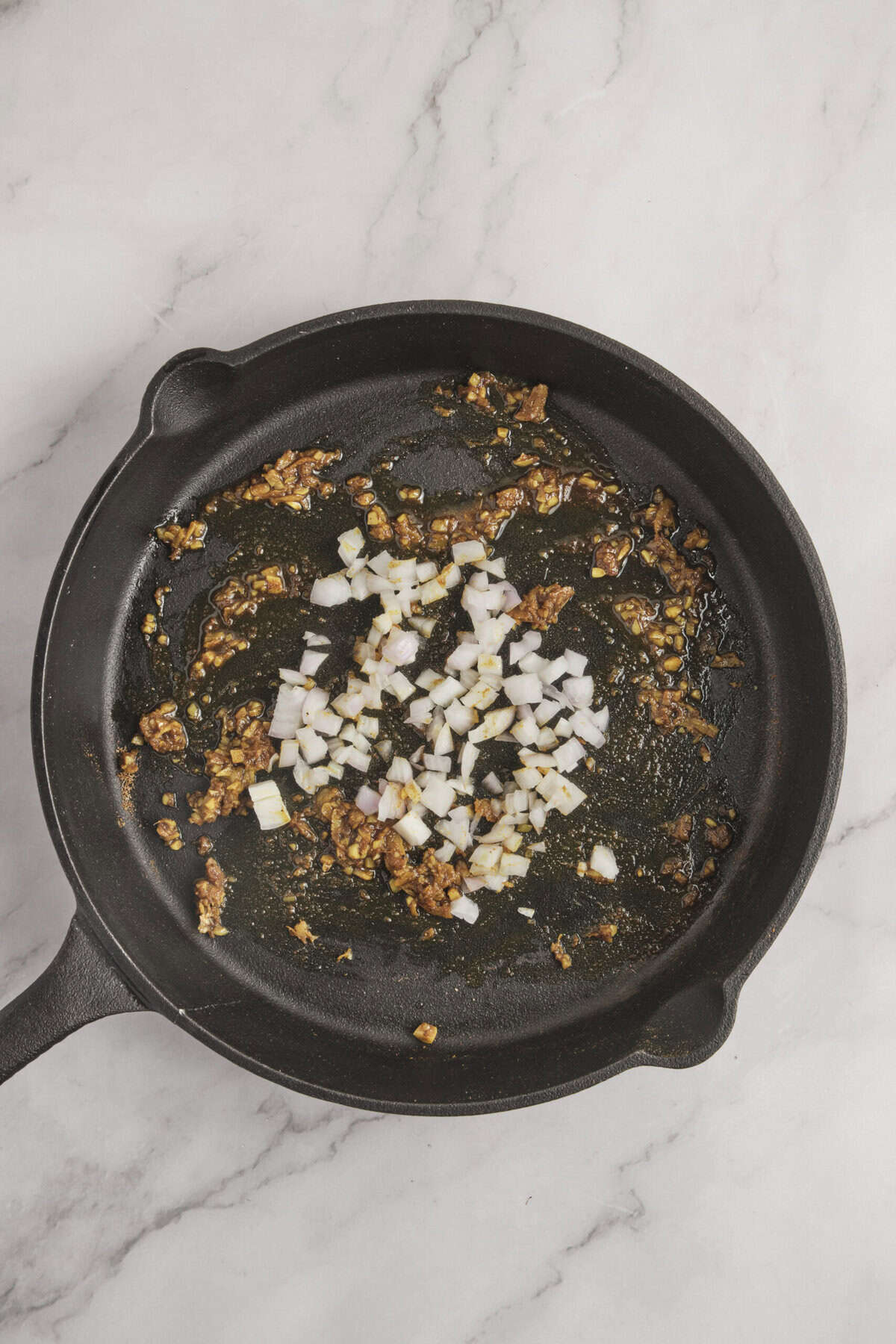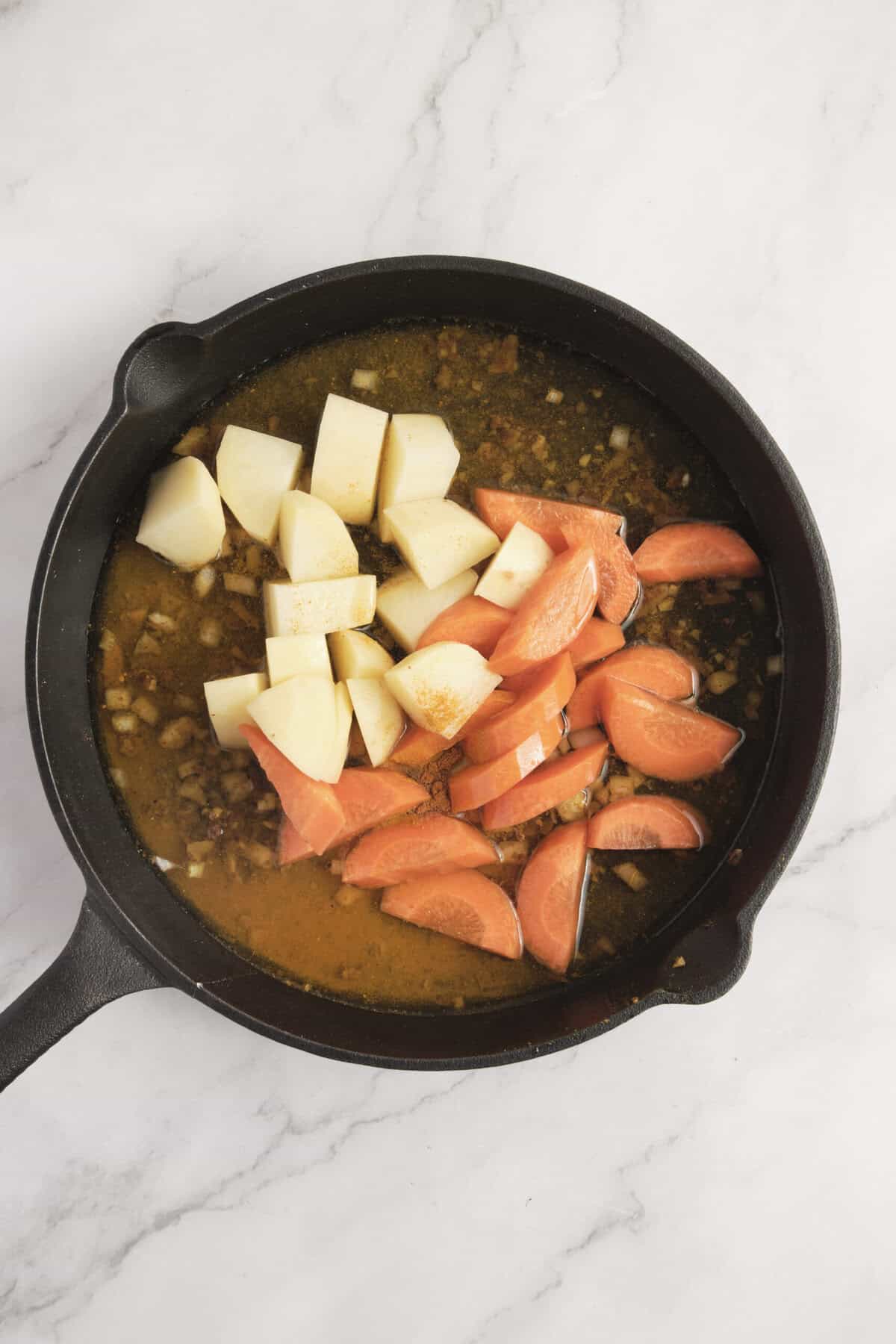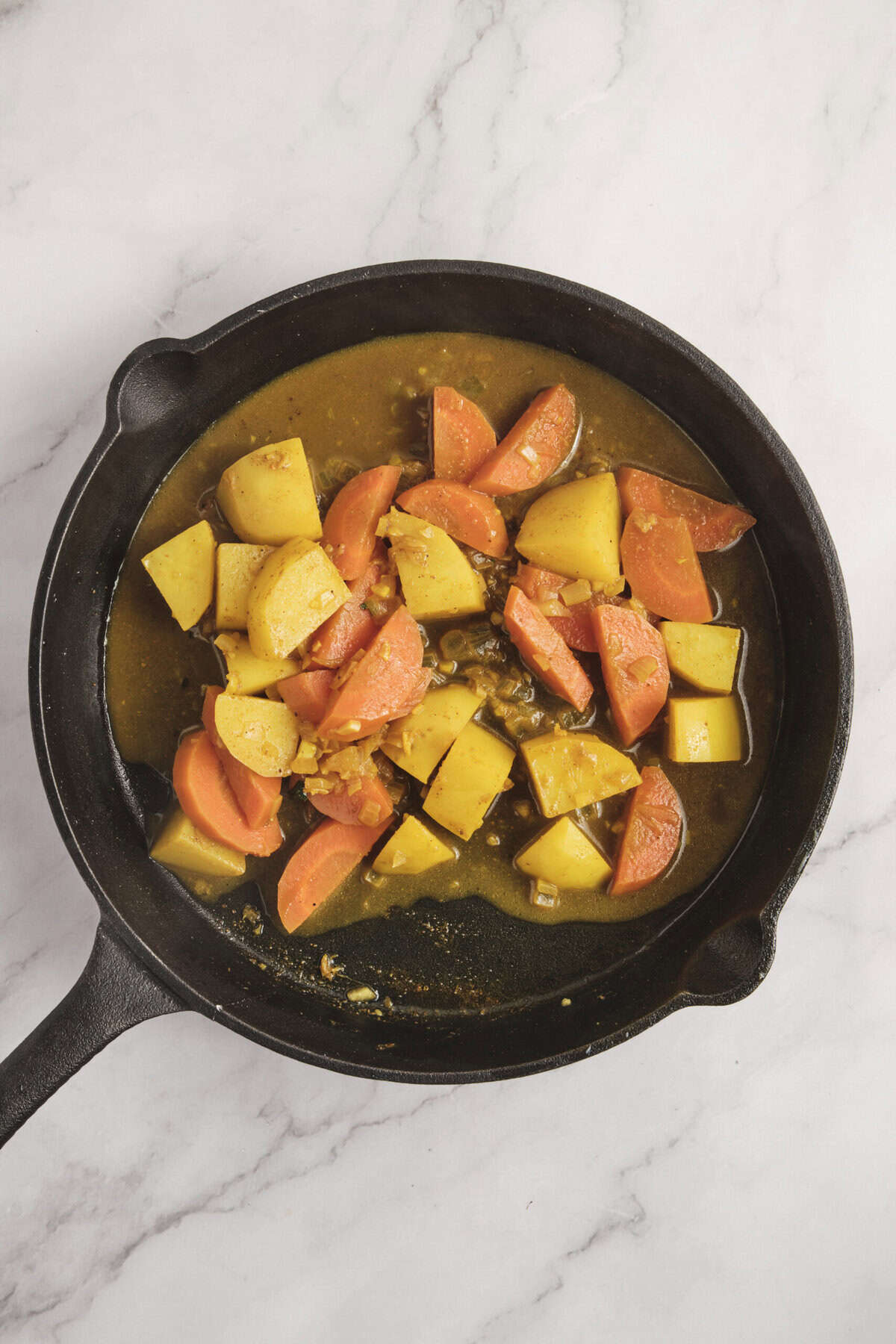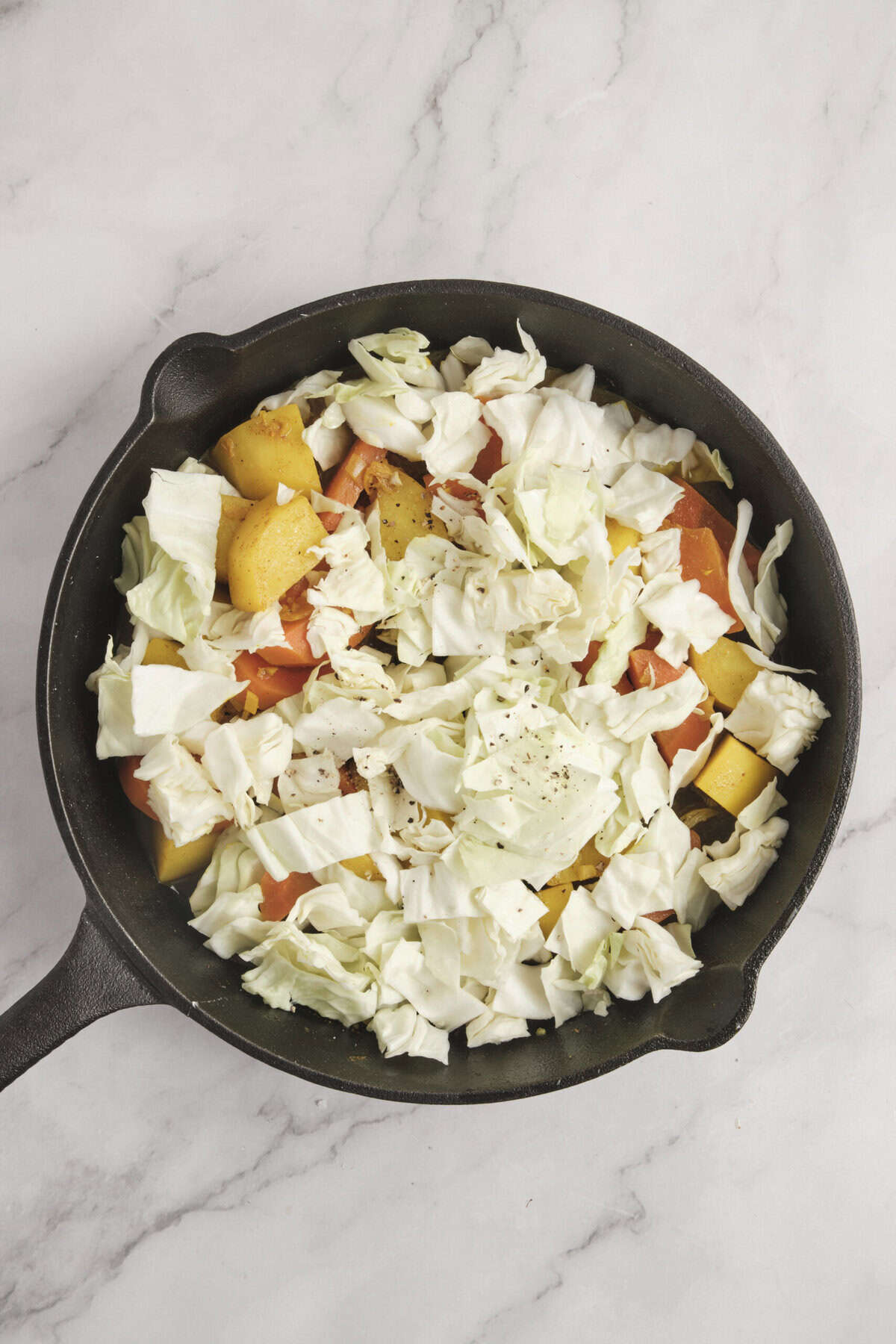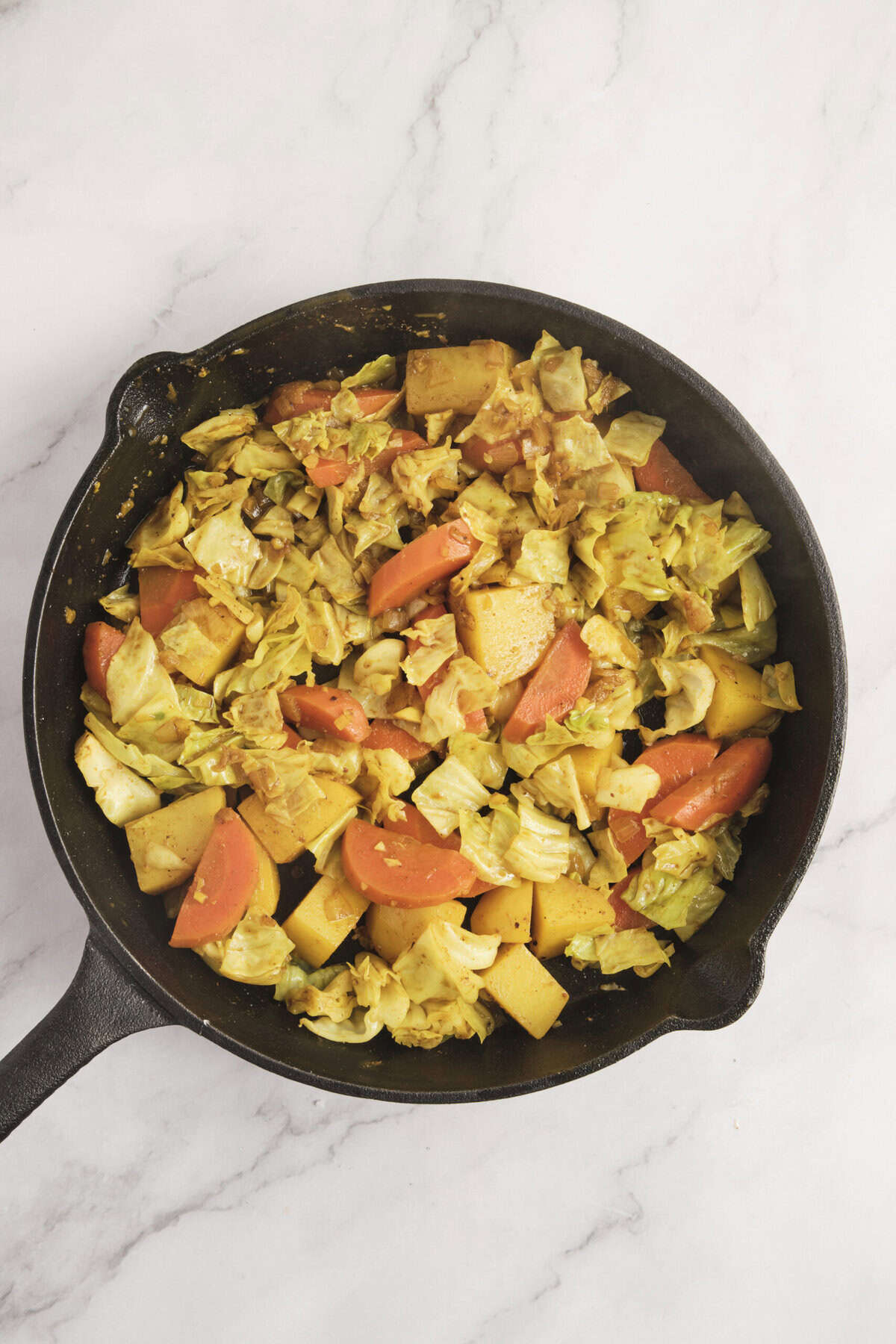This 30-minute vegetarian dish makes a perfect mid-week dinner when you want amazing flavors with minimal preparation.
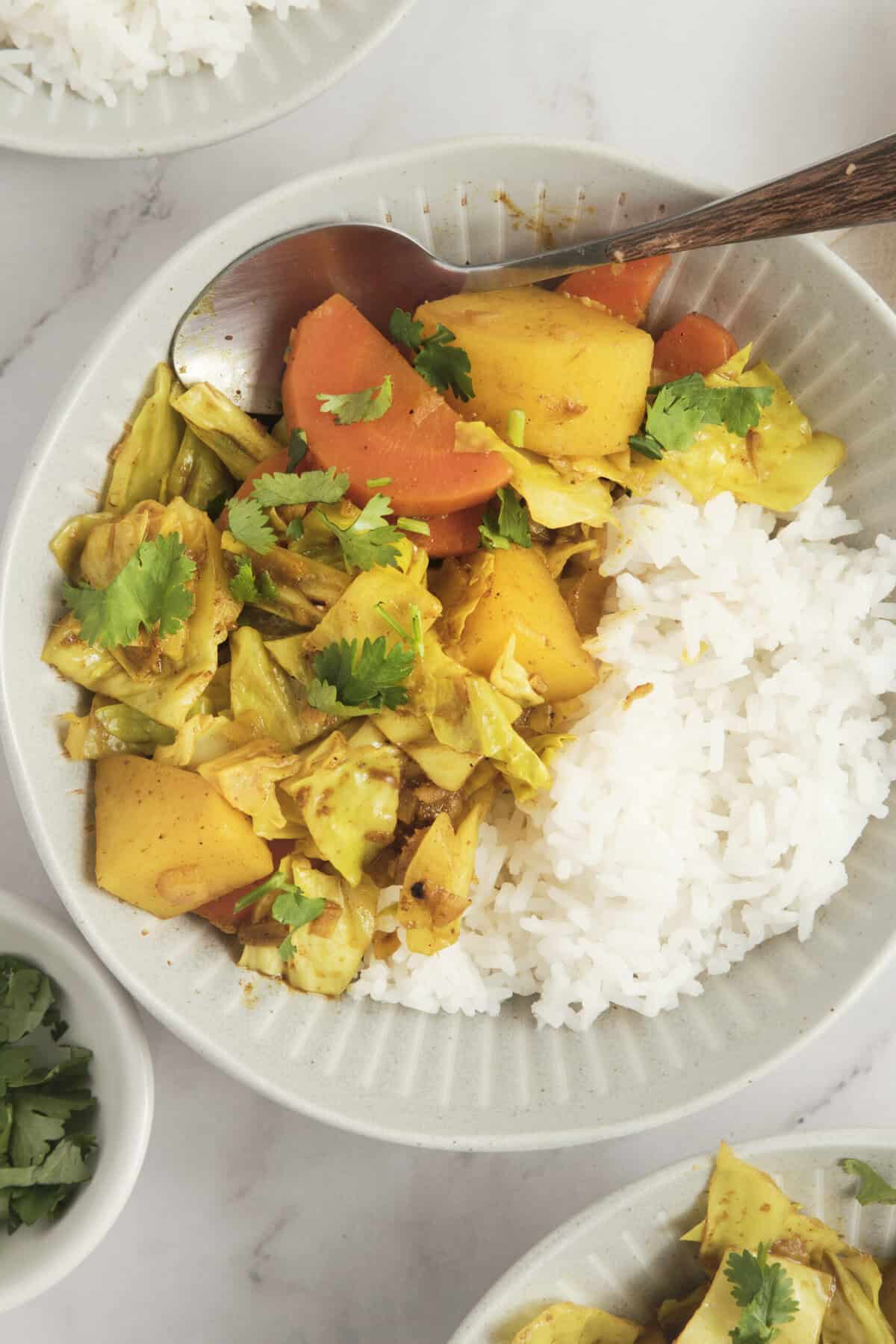
Forget every other cabbage recipe you’ve ever read. Or at least, that might be what you want to do when you read this one for Ethiopian cabbage. I’d love to tell you that the taste is the best part of this dish, but I think it’s a tie with how amazing it smells while it’s cooking. That wonderful aroma comes from spices like ginger, garlic, turmeric, cumin, cardamom, and cinnamon. These happen to be my favorite, so believe me when I tell you how excited I was to make this recipe.
The flavors are off the charts. Every delectable bite brings something else. You might taste more cinnamon in one taste but more ginger or cumin in another. That’s one of the things that makes this dish so special. Those flavors combine beautifully while still allowing each one to shine through on its own merit. My mouth is watering just thinking about it. And, since I have a large head of cabbage in the refrigerator waiting to make a pot of soup, and I only need half of it for that, you know what I’m going to be doing with the other half.
I’ve made this recipe twice so far. Once with an Idaho potato, and once with a sweet potato, since that’s what I had on hand. Since I love sweeter flavors in my food, I thought that was perfect. I’ll probably always use a sweet potato in the future. The only other change I make is to omit the cilantro since I’m not a fan. It’s for a garnish, anyway, and I find that parsley is always a potential substitute.
If you’ve never had Ethiopian food, you are in for a tasty treat. Years ago, I belonged to a culinary club with a group of friends. Each month, a different person hosted and picked the theme. I loved it when we would prepare African foods, as that was always a nice change from Italian, French, and other popular cuisines. We actually had to look up new recipes for that month. Each person would bring a unique dish to share. And with so many excellent cuisines throughout the continent, the meal would be truly delicious.
Don’t forget to follow us on Facebook!
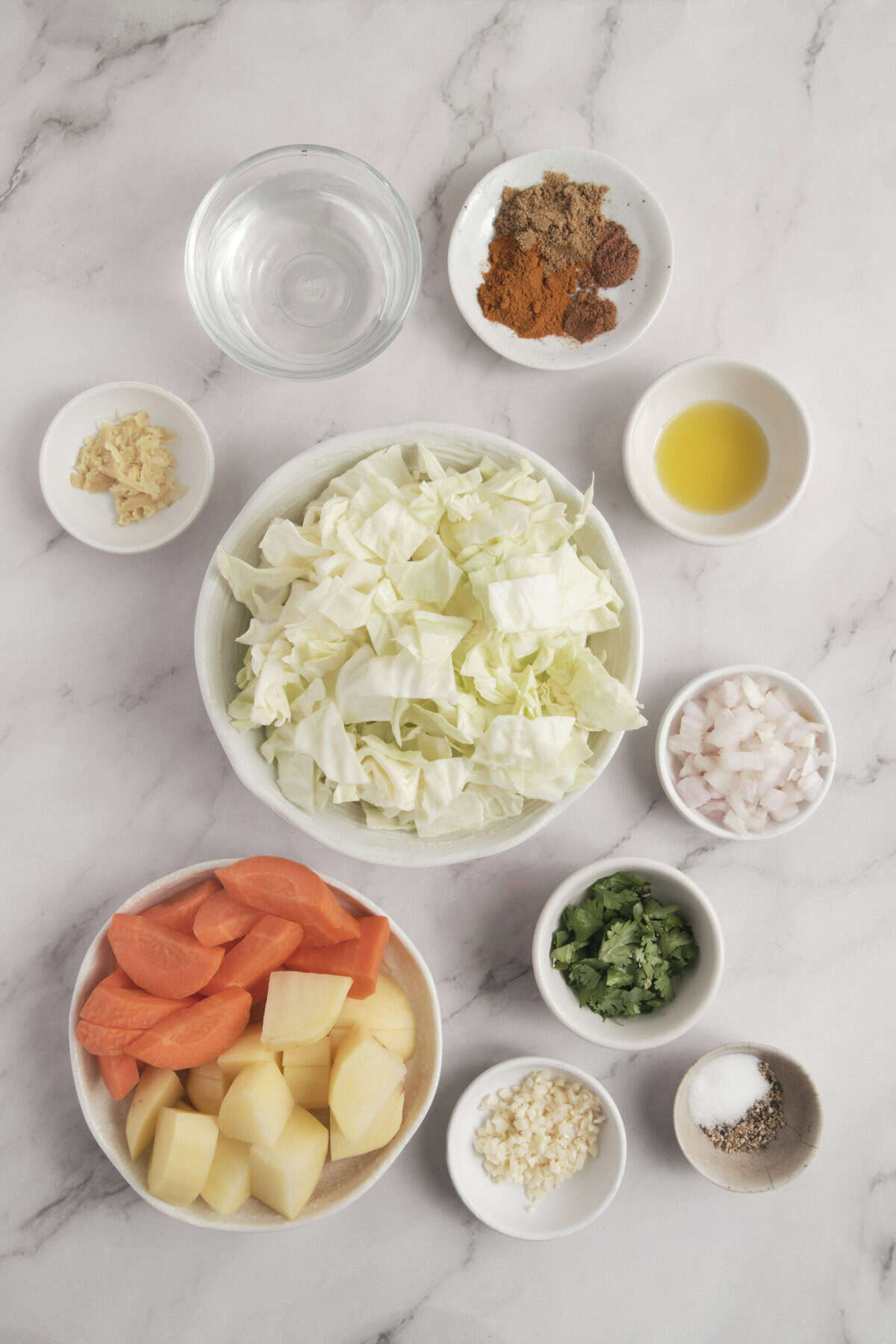
Get to know Ethiopian cooking
I could write a book on the different types of African cuisines, but we certainly don’t have time for that here. I’ve long enjoyed Moroccan foods, with their blend of North African, Middle Eastern, and Mediterranean flavors. I’m just now starting on my Ethiopian journey, which is very different from other foods I’ve had. It features spicy meat dishes, earthy stews, and rich, savory vegetarian dishes that incorporate split peas, lentils, and a variety of vegetables, including collard greens.
Ethiopian meals center around one particular staple grain, teff, which is made into a large, spongy, tangy, sourdough flatbread called injera. The injera is the base of the meal, with pieces torn off and used to scoop up the accompanying foods. Communal meals are served family-style on a large metal platter called a gebeta and eaten by hand. One injera is placed on the gebeta, and the various foods are placed on top. Additional rolled injera are often included.
In Ethiopian tradition, it is customary to use the right hand for eating and the left hand for personal hygiene. In Ethiopia, couples often feed one another in a practice called gursha.
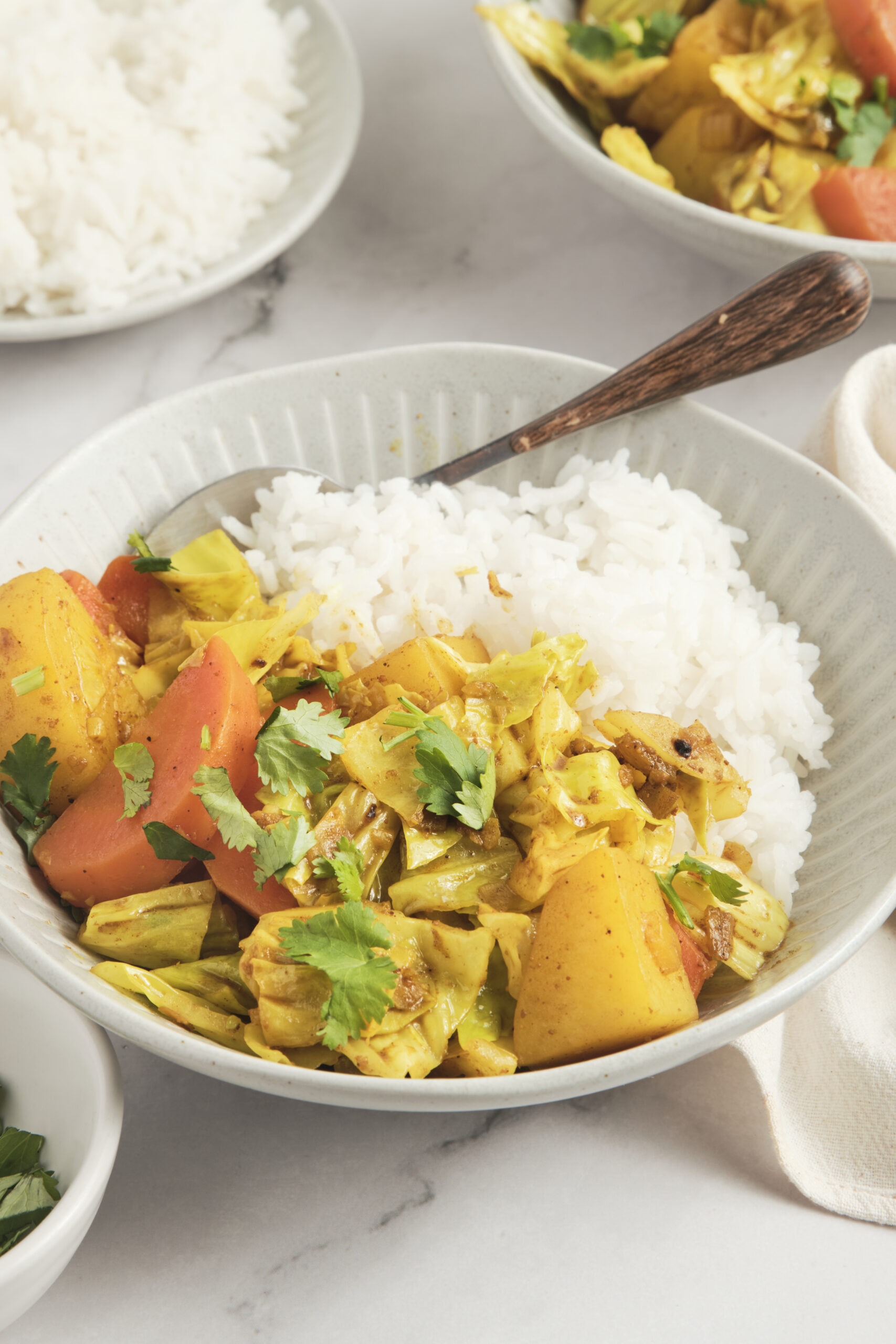
How do I store leftovers?
Allow leftover Ethiopian cabbage to cool to room temperature, then refrigerate it in an airtight container for up to 4 or 5 days. You can also freeze the chilled leftovers in freezer-safe containers or zippered bags for up to 3 months. The potatoes may get mealy during freezing and thawing. Defrost it in the refrigerator overnight, and reheat it in the microwave until hot.
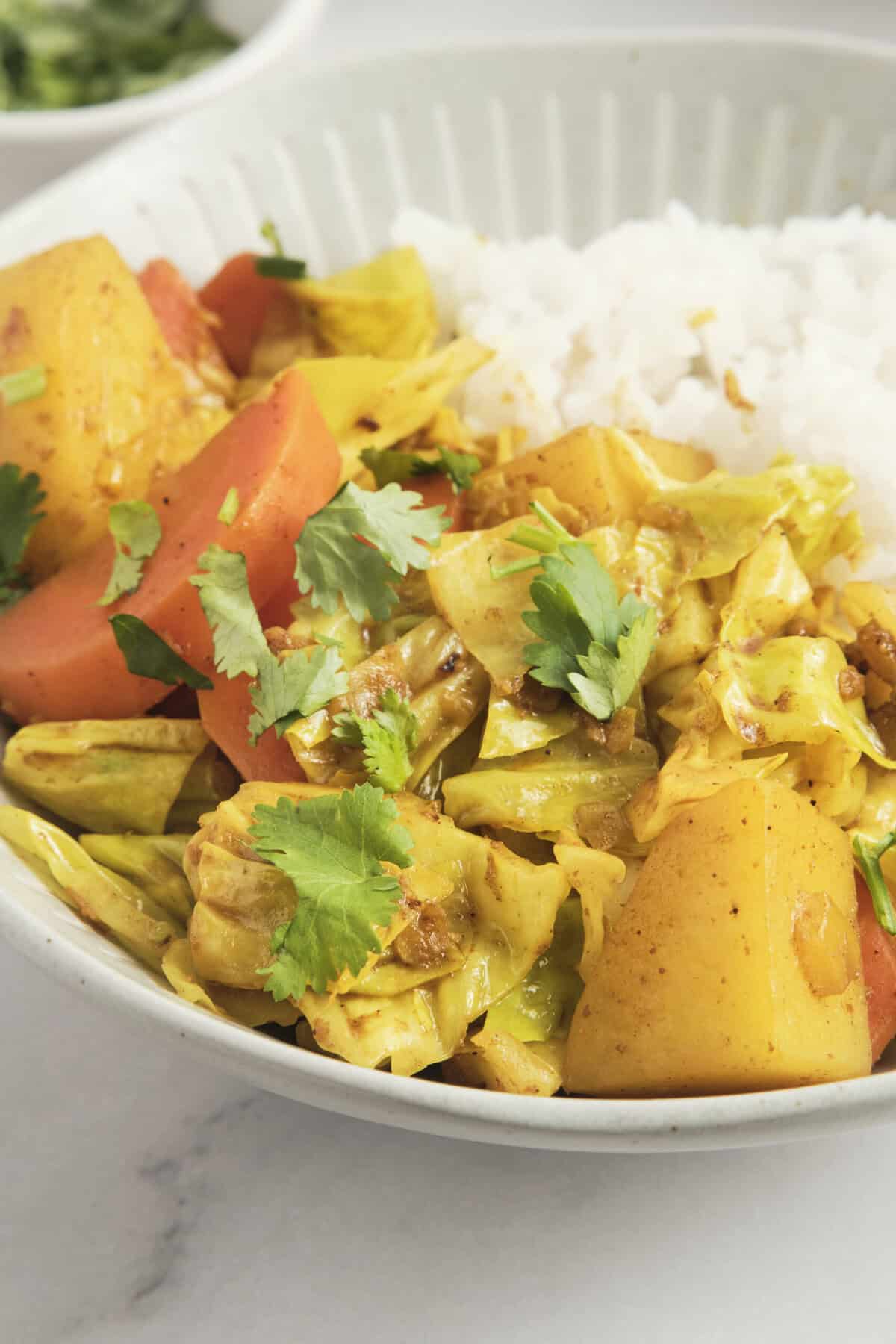
Serving suggestions
As you embark on your Ethiopian and African culinary journey or seek to try new dishes to complement your existing favorites, this Ethiopian cabbage is an excellent starting point. If you don’t have teff on hand to make injera, you can try these recipes for Yogurt Flatbread or Gluten-Free Flatbread. Enjoy the cabbage alongside Kuku Paka (East-African Chicken Curry), or you can marinate your favorite protein with this garlicky Chermoula Recipe. Serve some fresh papaya and mango for dessert and enjoy a delicious meal.
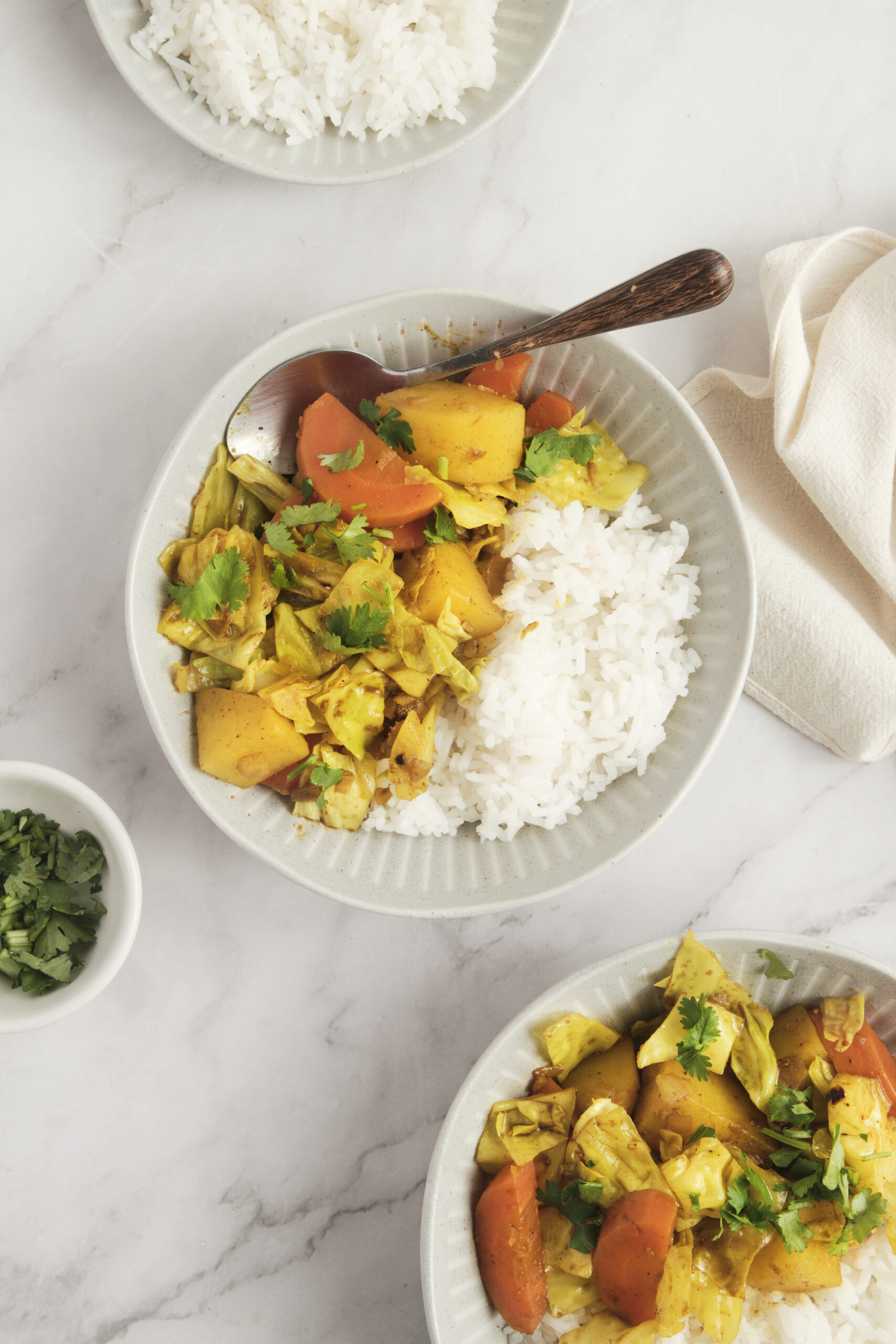
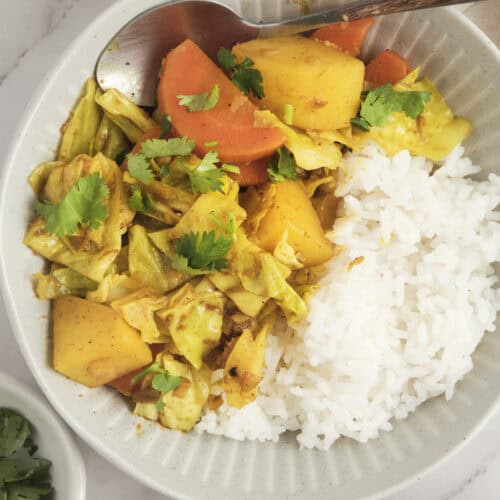
Ethiopian Cabbage Recipe
Ingredients
- 1 1/2 tablespoons olive oil
- 2 teaspoons minced garlic
- 1 teaspoon ginger paste
- 2 teaspoons turmeric powder divided
- 1 teaspoon cumin powder
- 1/4 teaspoon cardamom powder
- 1/4 teaspoon ground cinnamon
- 1 small red onion diced
- 2 large carrots diced
- 1 medium potato diced
- 1 cup water
- 1/2 head cabbage chopped finely
- 3/4 teaspoon salt plus more to taste
- 1/2 teaspoon freshly ground black pepper
- Fresh cilantro chopped (for garnish)
Instructions
-
Heat olive oil in a cast iron skillet or Dutch oven over medium heat.

-
Add garlic, ginger paste, 1 teaspoon of turmeric powder, cumin powder, cardamom, and cinnamon. Stir and let the spices infuse for about 30 seconds, being careful the oil does not get too hot.

-
Add the diced red onion and sauté for about 1 minute until slightly browned.

-
Add the diced carrots, potato, water, and remaining turmeric powder. Stir well so that the vegetables are evenly coated with the spices.

-
Cover the pan and cook on medium heat for 10 minutes. Check with a fork to ensure the carrots and potatoes are almost tender.

-
Stir in the chopped cabbage along with salt and black pepper. Cover and cook for an additional 5-10 minutes until the cabbage is tender but still holds shape.

-
Remove the pan from heat and serve the dish hot, garnished with cilantro. Enjoy with rice or flatbread if desired.

Nutrition
The post Ethiopian Cabbage Recipe appeared first on Food Faith Fitness.

